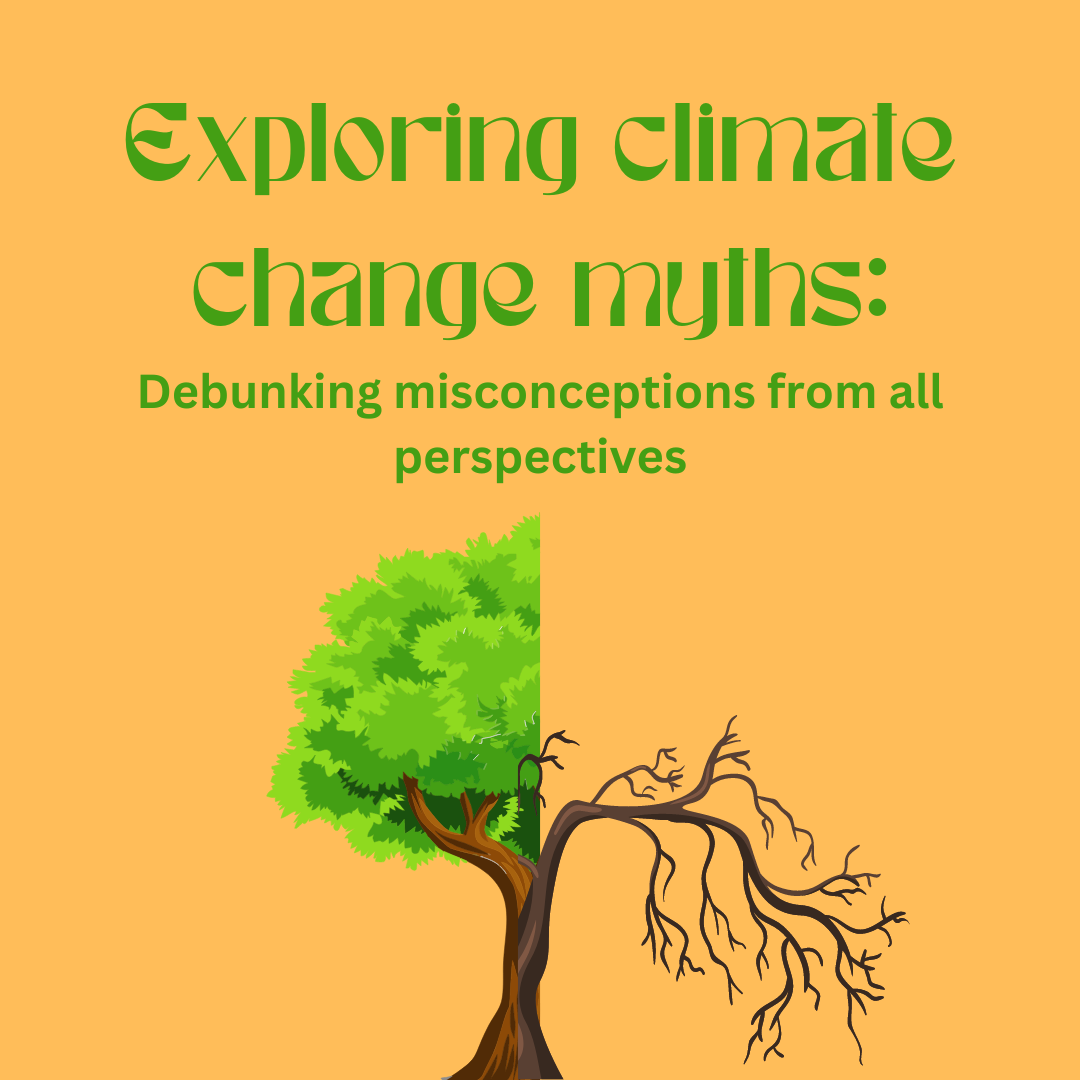Exploring Climate Change Myths: Debunking Misconceptions from All Perspectives
When we enter discussions about climate change (global warming) one is usually under the impression that one’s arsenal of facts are impermeable. Therefore, this article serves the purpose of exposing biases and myths perpetuated on both sides of the spectrum. In other words, those who believe in climate change (a belief often associated with the liberal left) and those who deny it.
This article does not serve to equate the two or to compare them, because even though myths are being purported by both sides of the climate-political spectrum, it should be noted that climate change is real – a fact that is irrefutable, beyond doubt, since it has been scientifically proven.
Myths Perpetuated By Those Who Believe In Climate Change
- “Climate change will have a disastrous effect on the global economy”
Climate change is oftentimes greatly exaggerated. While it is necessary to employ reasonable realistic pessimism to invoke caution, fear mongering will have an overshot effect – like a parabola – and will therefore effectively be tantamount to complete apathy. One of these exaggerations is that global warming will reduce the U.S. GDP growth by one third – this is a wild overshoot.
David Barker, a former University of Chicago professor and former Federal Reserve Bank of New York economist, has described that the results from this study “comes from using an extreme estimate of warming multiplied by a statistically insignificant coefficient that changes sign when estimated with a different source of data.” This renders the results meaningless and effectively paralyses large swaths of the population with fear.
Best estimates are that climate change will reduce the U.S. GDP by a low- to mid-single digit percentage by 2100. Let me highlight that, while this projection is not positive by any means, it is also not nearly as dire as what some would like you to believe.
- “Climate Change will Lead to Immediate Extinction”
If this myth/statement were to be phrased as a question, the answer would be: almost certainly not. Reports from the Intergovernmental Panel on Climate Change (IPCC) outline various scenarios to illustrate potential climate risks that the world might encounter.
These scenarios, called “representative concentration pathways” (RCPs) by the IPCC, encompass a spectrum of possibilities, ranging from the relatively moderate RCP2.6 scenario to the extreme RCP8.5, which would entail catastrophic risks. This, however, does not mean that we’re in the clear. Low-lying coastal areas, whether wealthy or impoverished, are likely to suffer greatly from the impacts of global warming, particularly those facing two or three feet of sea level rise. This, and the likely climate migration, will be disastrous in its own right.
- “Renewable Energy is Perfectly Clean”
While renewable energy sources, such as solar and wind power, produce fewer greenhouse gas emissions compared to fossil fuels, they are not entirely without environmental impact.
For example, the production of solar panels and wind turbines involves the extraction and processing of raw materials, which can have widespread ecological consequences. Because of the diffusive nature of their fuel sources, renewables consume a magnitude more materials for the same electricity output, thereby causing greater environmental burdens than more dense energy sources do. Additionally, large-scale renewable energy projects can disrupt ecosystems and wildlife habitats if not properly planned and managed.
Acknowledging these impacts is important for ensuring that renewable energy transitions are carried out sustainably and responsibly.
Myths Perpetuated by Those Who Are Skeptical About Climate Change
- “Individual Actions Don’t Matter”
A common misconception about sustainability is the belief that what one person does doesn’t really make a difference. But imagine if everyone thought this way, it would have catastrophic consequences on our environment and society. Certainly, while the impact of an individual alone may not change the world, the aggregated contribution of the majority of the population certainly can. That is why each of us has a responsibility to promote sustainability and protect our planet.
By making small changes in our purchasing habits, reducing our carbon footprints, and collaborating with others, we can all contribute to a more sustainable future. Remember, even the smallest actions can add up to make a big difference.
This journey starts with education and awareness. Only through a cultural paradigm shift will we be able to address an issue as vast as the sustainability of our society. It’s essential that we recognize ourselves as part of an ecosystem and not on the top of it. We should act virtuously and sustainably not merely for the action itself or to feel superior but by acting as an integral part of the world itself, as a fundamental piece of the puzzle.
- Another timeless belief: “Climate change doesn’t exist, or rather, the climate has always changed”
This argument is often used to downplay the urgency of addressing climate change. Over the course of Earth’s 4.5-billion-year history, the climate has changed a lot, this is true. However, the rapid warming we’re seeing now can’t be explained by natural cycles of warming and cooling and the scale of change is unprecedented.
There is a strong correlation between CO2 concentration and temperature rise. Currently, CO2 levels are increasing at a rate far higher than in the past, primarily due to human activities such as burning fossil fuels and deforestation.
Since the middle of the 20th century, annual emissions from burning fossil fuels have increased every decade, from close to 11 billion tons of carbon dioxide per year in the 1960s to 36.6 billion tons in 2022 according to the Global Carbon Budget 2022.
Carbon dioxide is Earth’s primary greenhouse gas, responsible for the greenhouse effect. These gases trap heat radiating from the Earth’s surface and re-release it, warming the planet. Additionally, carbon dioxide dissolves into the ocean, leading to ocean acidification as it reacts with water molecules, lowering the ocean’s pH levels.
- “Climate change is not a European problem because we already do enough and developing countries are the sole cause”
This belief overlooks the interconnected nature of climate change and fails to recognize Europe’s historical contributions to greenhouse gas emissions. While it’s true that developing countries are significant contributors to current emissions due to their current industrialization, it is hypocritical to blame developing nations for their emissions, considering that our own past emissions have contributed to our current level of development.
Furthermore, framing climate change as solely a problem caused by developing countries ignores the reality that climate impacts know no boundaries. Rising global temperatures, extreme weather events, and sea-level rise affect communities worldwide, regardless where the emissions came from.
Instead of blaming, the moral role of more developed nations should be to minimise their own environmental impact as much as possible. Additionally, they should take a leadership role in guiding developing nations towards adopting sustainable practices and technologies that can help mitigate their emissions as they progress economically. This includes providing support for mitigation and adaptation measures in developing countries and working towards equitable solutions that consider the needs of all nations. This approach emphasises cooperation and shared responsibility in addressing climate change on a global scale.
Ultimately, climate change is a global challenge that requires collective action and cooperation from all countries. Instead of pointing fingers, it’s essential to recognize the shared responsibility and work together towards impactful solutions that benefit the planet and all its inhabitants.
By Valerio Costa and Margherita Nespoli.
Sources:
https://www.fraserinstitute.org/article/beware-of-exaggerated-claims-of-climate-harm
https://climate.mit.edu/ask-mit/will-climate-change-drive-humans-extinct-or-destroy-civilization
https://www.mackinac.org/blog/2023/clean-energy-isnt-clean
https://www.wwf.org.uk/updates/here-are-10-myths-about-climate-change




